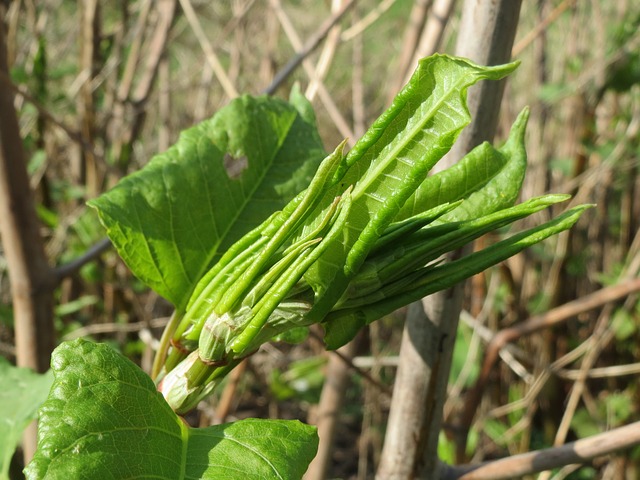
Every living thing known to man has a Latin name that should be used when referring to that species in a formal scientific context. For example, human beings are Homo sapiens, polar bears are Ursus maritimus, and the common sunflower is Helianthus annuus.
In theory, these scientific names are internationally recognised - what you call a 'dog' is called a 'chien' in France and a 'koira' in Finland, but biologists in all three countries should understand what Canis lupus familiaris means.
So what is the proper name for Japanese knotweed? Read a few articles online, and you may notice that different sources use different Latin names when referring to this pesky plant - Fallopia japonica and Reynoutria japonica are the most common, but Polygonum cuspidatum and various other monikers pop up from time to time as well.
Which Latin name should I use?
In the UK, at least, the preferred Latin name for Japanese knotweed seems to be Fallopia japonica. That's what we call it here at Taylor Total Weed Control; it's also the name used by the Royal Horticultural Society, Britain's leading authority on all things green. (The RHS website also lists Polygonum cuspidatum as a synonym.)
UK news organisations also show a preference for the name Fallopia japonica:
"Although Japanese knotweed (Fallopia japonica) arrived in the UK in an unsolicited package of plant species in 1850, it was soon being cultivated and sold by an increasing number of plant nurseries." - BBC News
"The Japanese knotweed, Fallopia japonica, is causing major damage to building foundations, pavements and dykes in the Dutch capital, costing millions of euros a year." - The Guardian
So rest assured that - if you live in the UK - you can use the Latin name Fallopia japonica without fear of getting laughed out of your local botany club.
The other names mentioned above are more common in non-British publications, although some of them use Fallopia japonica too:
"Polyganum cuspidatum is less like a rarefied salad green than a ticking time bomb. Spring provides one of those rare moments when 'harvest with abandon' is a reasonable recommendation." - The New York Times
"Montaldo expects the summer will bring his firm hundreds of inquiries from buyers fighting sellers, homeowners fighting contractors, and neighbors fighting neighbors - all over Fallopia japonica." - Slate
Wikipedia's entry on Japanese knotweed uses Reynoutria japonica as its main heading, with Fallopia japonica and Polygonum cuspidatum listed as synonyms. Wikipedia can of course be edited by anyone, regardless of where they're from, but the online encyclopaedia does tend to prioritise American English names and spellings - they even use the American spelling of 'encyclopaedia' (dropping the 'a' after the 'p') on their homepage!
Japanese Knotweed Control >
Photo from Pixabay
